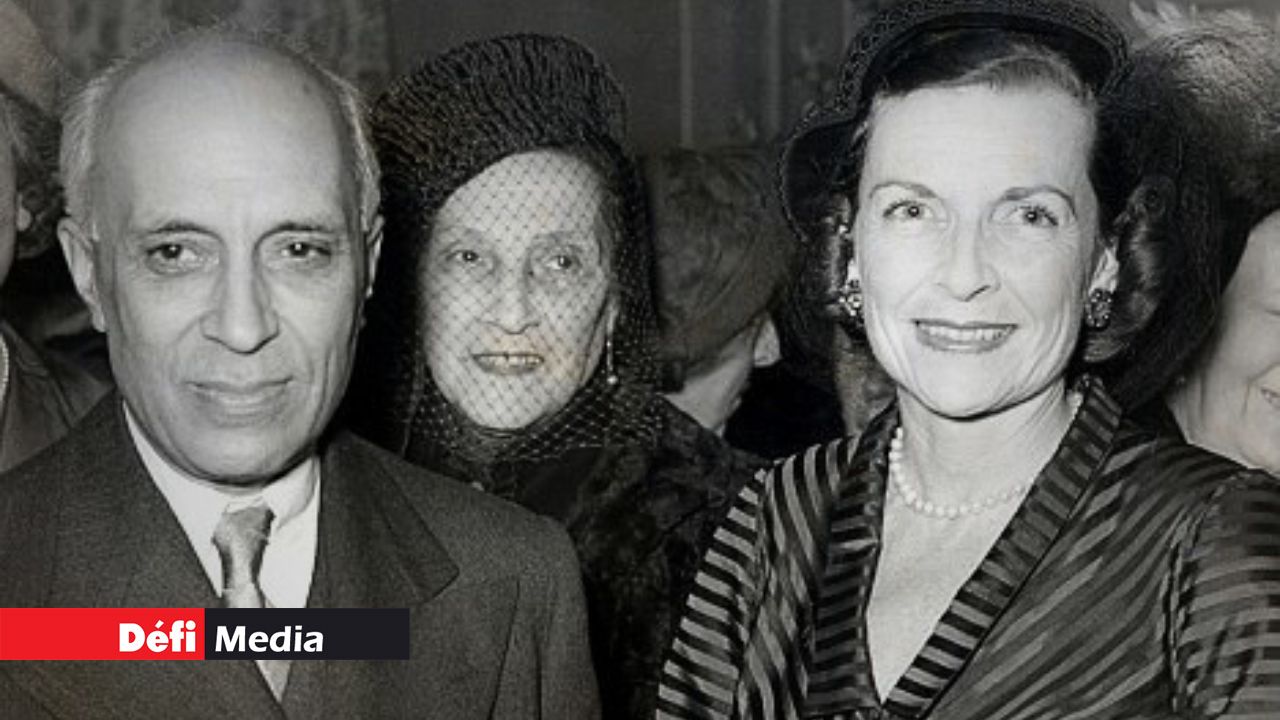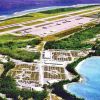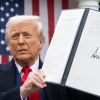
On 15th August 1947, India had its tryst with destiny. It obtained its independence from British rule after a long struggle that culminated in freedom as well as partition, mass displacement of people and thousands of deaths. All this is part of history and is well-known. What is less known, however, is that during that momentous period, a love story bloomed between two major protagonists: Jawaharlal Nehru, an architect of India's independence and Edwina Mountbatten, a representative of the British Crown.
Publicité
They first met in Singapore when Nehru, as one of the main leaders of the independence movement, was touring a number of British colonies. He was received by Louis Mountbatten who was serving as Allied Supreme Commander, and his wife Edwina Mountbatten, a beautiful, gracious and charming British aristocrat. The latter was not indifferent to the charms of the aristocratic Kashmiri Brahmin who was, in his youth, immersed in British culture and ways of life. In fact, he grew up in an environment dominated by the presence of the Britishers in India as his father, Motilall Nehru, a lawyer educated in England, used to frequently receive the top brass of the colonial administration at his residence.
Jawaharlal himself did his secondary studies at Harrow Public School and later joined Trinity College, Cambridge to complete his law degree. He was very familiar with the western culture and as a student, he wrote to his mother in March 1912 that if ever he would marry, it would be a love marriage : "Would you like me to get married for the rest of my life with a girl I don't love or who does not love me? Better that I don't get married at all ".
However, when the time of marriage came, it was his father who chose a bride for him in a traditional way, "Trust me", he told him. He chose as his daughter-in-law a girl from the same caste, a Kashmiri Brahmin. Her name was Kamala Kaul. She was tall, slim, and beautiful, but she could not speak English and was not used to the lifestyle of the Nehrus. Very often she would cry in secret, fearing the outbursts of anger of her mother-in-law and hostility of her sister-in-law, Vijaya Lakshmi, with whom Jawarlall did horse-riding every morning after his return from UK.
But Nehru was a caring man who knew that his wife had a frail health as she suffered from tuberculosis. In September 1935, freed from prison, he took the first plane to Germany where Kamala was being treated and spent long hours with her. He regretted that he had neglected her on account of his political commitments, but he also took cognizance of the distance that existed between them, "C'était une inconnue qui se montrait à moi lorsque je plongeais dans ses yeux". She died at the age of 36 on February 28 ,1936 in a clinic in Switzerland.
Nehru became a widower. Destiny has it that the refined, elegant, romantic and charming Nehru had to meet the radiantly beautiful, intelligent, courageous and rebellious Edwina once again in life. In March 1947, Clement Atlee, the then-British Prime Minister, appointed Louis Mountbatten as the last viceroy of India to oversee its independence. Louis, Edwina and daughter Pamela landed in Delhi on 27th March 1947. At the very beginning itself they got along well with Nehru who, like them, came from ancient aristocratic families.
Edwina became a great support for Nehru during the painful time of the deadly riots that tore India during the partition. She would immerse herself tirelessly in humanitarian work by helping victims of all kinds and come to their succour. Nehru had nothing but admiration for her. Indira Gandhi related the following anecdote. One night they were having dinner when news came that a train had arrived full of victims. Edwina instantly removed her high heels and rushed to the station, where she devoted herself to nursing and caring for them. On the other hand, she was fascinated by the charm. Intelligence and courage of Nehru. She considered him as a hero who, even as Prime Minister, descended on the streets of Delhi to protect the victims of riots and wielded his baton against lax policemen who were not doing their duty to protect the victims, especially the minority groups.
When Nehru did such things, Edwina was gripped with fear. She would write in her diary:" Thank God, he is safe and sound". In such dire moments he could only rely on the support of Edwina on whom he could confide in all honesty and serenity. He wrote to her: "J'ai besoin de vous voir, de m'entretenir avec vous sans contrainte. Vous seule pouvez m'écouter".
In fact, when Mahatma Gandhi was assassinated, Nehru felt completely devastated and helpless. The only person who could provide comfort to him was Edwina. He told her: "I need someone who can speak heart-to-heart. You alone can do it".
When things calmed down, Louis, Edwina, daughter Pamela and Nehru went to spend some days in a hill station at Mashobra.
While Louis would be engrossed in his passion for drawing genealogical trees, Nehru and Edwina would spend their time together walking along the hills, talking and supporting each other. It seemed that Mountbatten was aware of the nature of their relationship, as he wrote the following to his elder daughter: "Elle et Jawarlall sont adorables à voir quand ils sont ensemble. Ils raffolent l'un de l'autre, vraiment ils sont exquis. Votre soeur et moi , nous faisons tout pour les aider avec tact ...".
But the time had come for the Mountbattens to leave India. It was a searing separation, and it was too much for Edwina who wrote: "Pensez à quel point je vous aime... je ne vous demande pas de m'aimer toujours mais je vous demande de vous en souvenir".
It was not the end of the story, however. Whenever Nehru visited England, he would stay at the manor of the Mountbattens where he would spend many happy hours alone with Edwina. Lord Louis would eclipse discreetly, pretexting some urgent work to do. The last meeting they had was in Delhi. She arrived on 26th January 1960 and stayed at the Prime Minister' s residence.
Every morning they would have breakfast together and dine together at night. On 5th February, he accompanied her to the airport, not knowing that this would be their last meeting. A last glance, and she departed.
On 26th February, the news came like a blow to the stomach. Edwina had passed away after a massive heart attack in Borneo. As per her wish, she was inhumed in the ocean on 25th February 1960. Her body was carried by HMS
Wakefal and was laid to rest in the depths of the ocean. Opposite Wakefal was Trishul, an Indian ship on which stood Nehru, who bid his farewell by throwing a garland of flowers in the ocean.
It is said that Nehru never really recovered from this ultimate separation.
Azize Bankur
Source: Nehru-Gandhi by Renee Paul Guillot, Flammarion, 2015

Notre service WhatsApp. Vous êtes témoins d`un événement d`actualité ou d`une scène insolite? Envoyez-nous vos photos ou vidéos sur le 5 259 82 00 !























